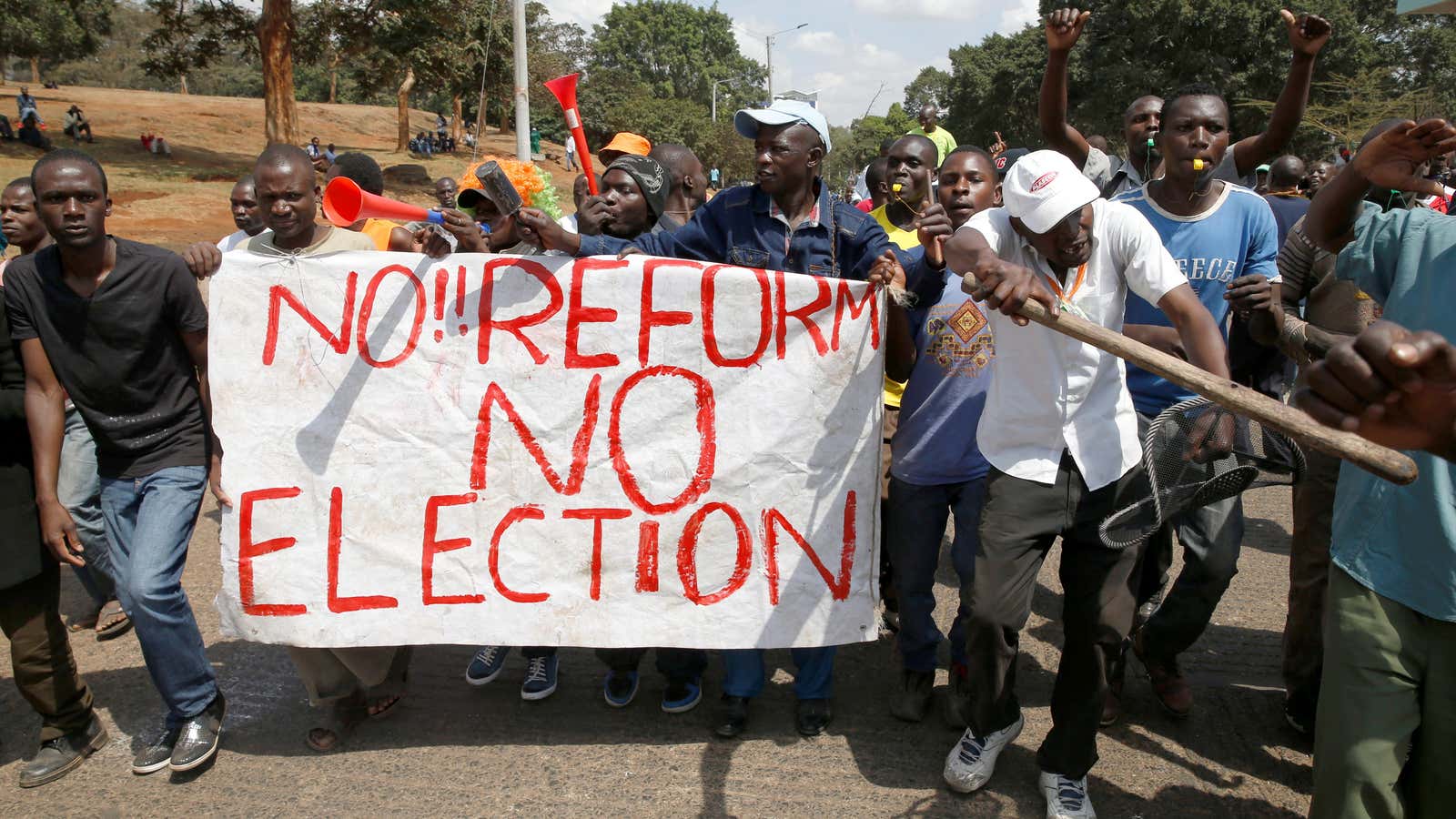Kenya’s high court and parliament both weighed in on the deepening political crisis in the country—a day after opposition candidate Raila Odinga withdrew his candidacy two weeks before the repeat presidential elections.
The court said that the seven candidates who participated in the nullified presidential election were qualified to run in the upcoming polls which are due to take place on Oct. 26. The court was ruling on a case filed by Ekuru Aukot from the Thirdway Alliance party, who garnered less than 1% in the Aug. 8 poll, but wanted to be included in the election re-run.
A few hours later, parliament passed a controversial bill to amend election laws, which were proposed in response to the supreme court annulment of the presidential results. The laws scrap the minimum requirements needed of the electoral commission chairperson and limit the ability of the supreme court to overturn election results. The amendments, whose voting was boycotted by opposition members, also stipulate that if a candidate withdraws from a repeat presidential election, the other one would automatically win.
The amendments were part of the reasons cited by Odinga as to why he withdrew from the elections, saying that the ruling Jubilee party wanted to use its majority in both houses of parliament to orchestrate a win. The now-annulled results had put president Uhuru Kenyatta in the lead with over 54.2% of the vote compared to Odinga’s 44.7%—a margin of 1.4 million votes.
Odinga also blamed the Independent Electoral and Boundaries Commission (IEBC) for failing to institute reforms that would help make the upcoming elections free and fair. IEBC, he said, “has wasted valuable time engaging in public relations exercises intended to create the illusion of motion without any movement.”
Odinga’s exit from the polls has confounded both critics and observers alike, opening up a myriad of interpretations about what happens next. Supporters of president Kenyatta were quick to point out Article 138 of the constitution, which states that if only one candidate was nominated for president, that candidate would be sworn in for the presidency.
Others also pointed to regulation 52 of the election laws, which notes that if one of two presidential contestants withdraws, the others will be declared president. But as Odinga supporters have reiterated, a supreme court judgment from 2013 shows that if a contender quits a rerun after an invalidated election, then parties should return to a new process of nomination—further lengthening the election process.
The electoral commission is now expected to interpret all these arguments and announce a decision soon. Meanwhile, the opposition continues to protest in the capital Nairobi and in their stronghold city of Kisumu in western Kenya demanding electoral reforms.
